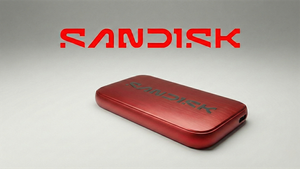
Manufacturing company IDEX (NYSE: IEX) met Wall Street’s revenue expectations in Q3 CY2024, but sales were flat year on year at $798.2 million. Its non-GAAP profit of $1.90 per share wasalso in line with analysts’ consensus estimates.
Is now the time to buy IDEX? Find out by accessing our full research report, it’s free.
IDEX (IEX) Q3 CY2024 Highlights:
- Revenue: $798.2 million vs analyst estimates of $793.4 million (slight beat)
- Adjusted EPS: $1.90 vs analyst expectations of $1.88 (slight beat)
- EBITDA: $214.3 million vs analyst estimates of $215.4 million (small miss)
- Management slightly raised its full-year Adjusted EPS guidance to $7.88 at the midpoint
- Gross Margin (GAAP): 44.3%, in line with the same quarter last year
- Operating Margin: 21%, down from 22.6% in the same quarter last year
- EBITDA Margin: 26.8%, down from 28.4% in the same quarter last year
- Free Cash Flow Margin: 24%, down from 26% in the same quarter last year
- Market Capitalization: $15.51 billion
“We are encouraged by our third quarter performance. The teams within our Fluid & Metering Technologies and Fire & Safety / Diversified Products segments drove organic growth against an uncertain economic backdrop while delivering strong margins through operational execution,” said Eric D. Ashleman, IDEX Corporation Chief Executive Officer and President.
Company Overview
Founded in 1988, IDEX (NYSE: IEX) is a global manufacturer specializing in highly engineered products such as pumps, flow meters, and fluidics systems for various industries.
Gas and Liquid Handling
Gas and liquid handling companies possess the technical know-how and specialized equipment to handle valuable (and sometimes dangerous) substances. Lately, water conservation and carbon capture–which requires hydrogen and other gasses as well as specialized infrastructure–have been trending up, creating new demand for products such as filters, pumps, and valves. On the other hand, gas and liquid handling companies are at the whim of economic cycles. Consumer spending and interest rates, for example, can greatly impact the industrial production that drives demand for these companies’ offerings.
Sales Growth
Examining a company’s long-term performance can provide clues about its business quality. Any business can put up a good quarter or two, but the best consistently grow over the long haul. Regrettably, IDEX’s sales grew at a tepid 5% compounded annual growth rate over the last five years. This shows it failed to expand in any major way, a rough starting point for our analysis.
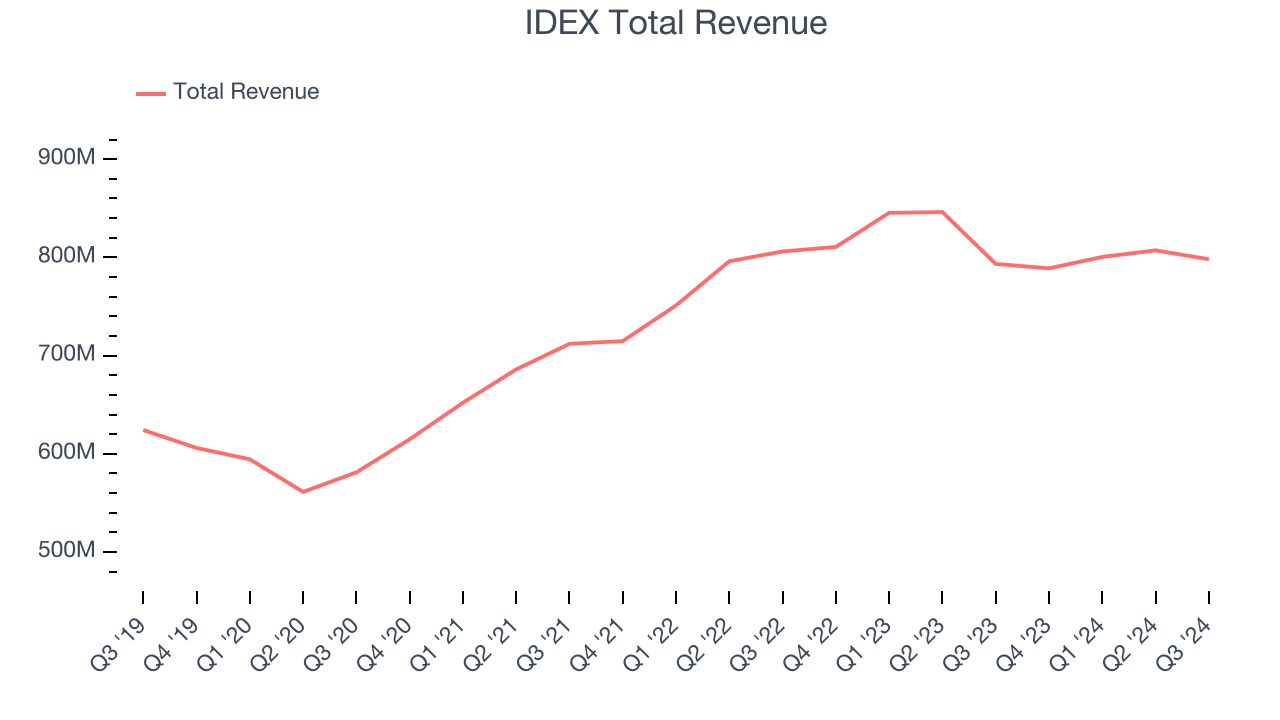
Long-term growth is the most important, but within industrials, a half-decade historical view may miss new industry trends or demand cycles. IDEX’s recent history shows its demand slowed as its annualized revenue growth of 2% over the last two years is below its five-year trend. 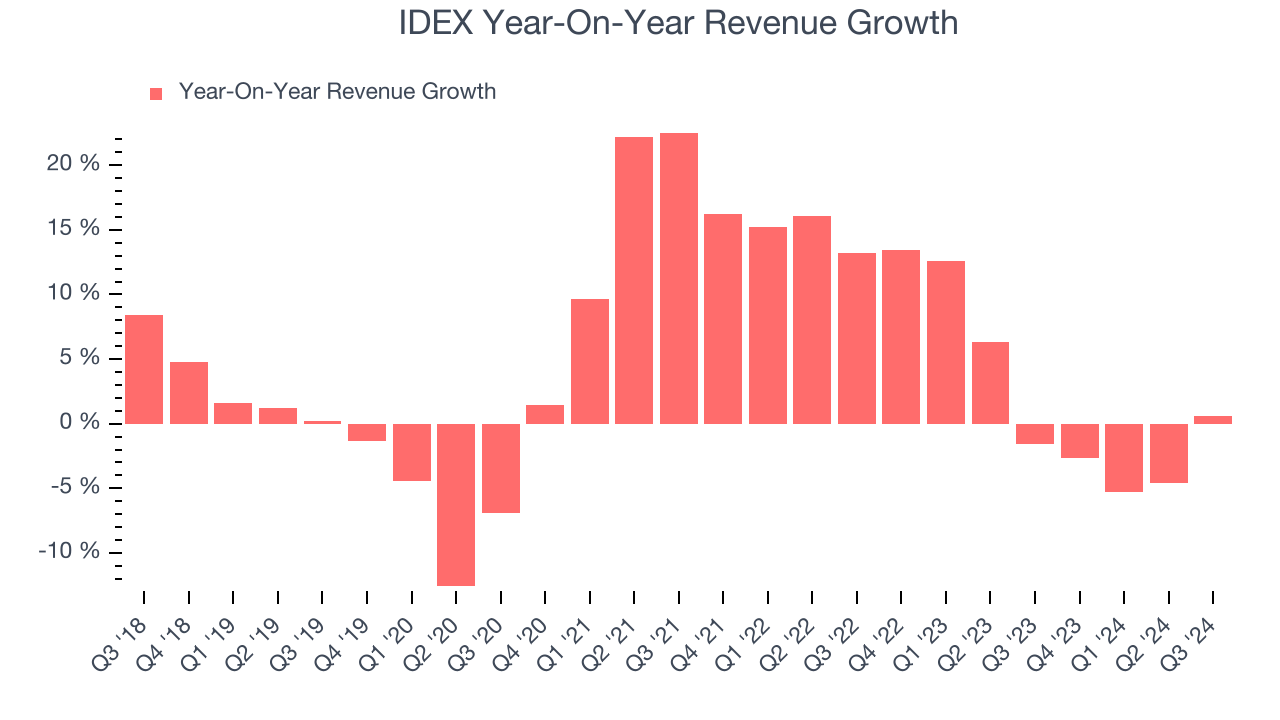
This quarter, IDEX’s $798.2 million of revenue was flat year on year and in line with Wall Street’s estimates.
Looking ahead, sell-side analysts expect revenue to grow 5.5% over the next 12 months. Although this projection indicates the market believes its newer products and services will fuel better performance, it is still below average for the sector.
Here at StockStory, we certainly understand the potential of thematic investing. Diverse winners from Microsoft (MSFT) to Alphabet (GOOG), Coca-Cola (KO) to Monster Beverage (MNST) could all have been identified as promising growth stories with a megatrend driving the growth. So, in that spirit, we’ve identified a relatively under-the-radar profitable growth stock benefitting from the rise of AI, available to you FREE via this link.
Operating Margin
Operating margin is one of the best measures of profitability because it tells us how much money a company takes home after procuring and manufacturing its products, marketing and selling them, and, most importantly, keeping them relevant through research and development.
IDEX has been a well-oiled machine over the last five years. It demonstrated elite profitability for an industrials business, boasting an average operating margin of 22.6%. This result isn’t surprising as its high gross margin gives it a favorable starting point.
Analyzing the trend in its profitability, IDEX’s annual operating margin might have seen some fluctuations but has generally stayed the same over the last five years, highlighting the long-term consistency of its business.
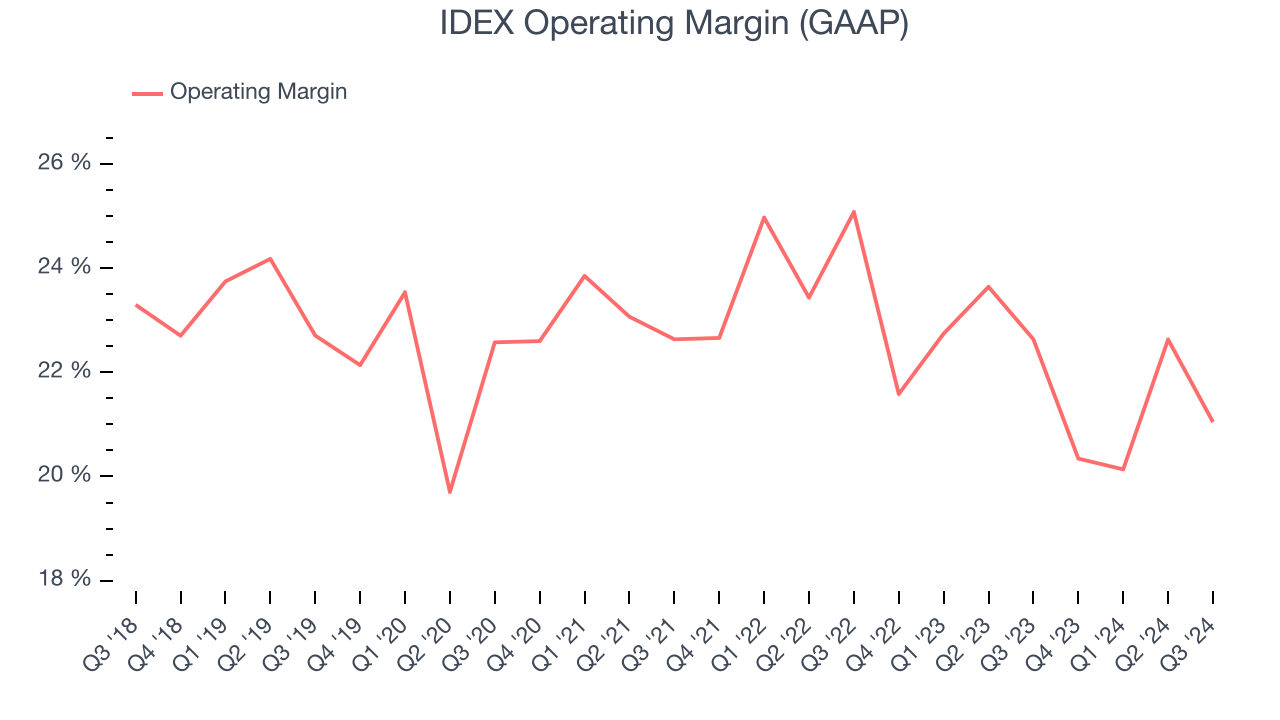
In Q3, IDEX generated an operating profit margin of 21%, down 1.6 percentage points year on year. Since IDEX’s operating margin decreased more than its gross margin, we can assume it was recently less efficient because expenses such as marketing, R&D, and administrative overhead increased.
Earnings Per Share
We track the long-term change in earnings per share (EPS) for the same reason as long-term revenue growth. Compared to revenue, however, EPS highlights whether a company’s growth was profitable.
IDEX’s unimpressive 5.8% annual EPS growth over the last five years aligns with its revenue performance. This tells us it maintained its per-share profitability as it expanded.
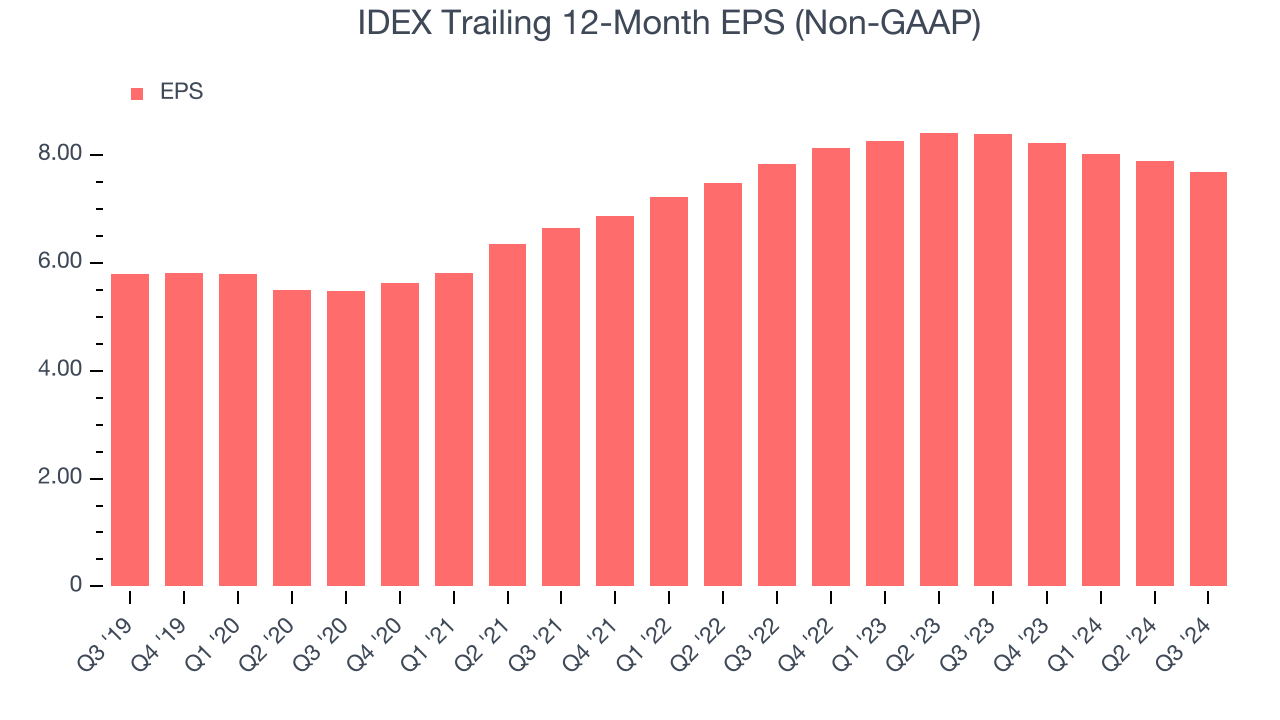
Like with revenue, we analyze EPS over a shorter period to see if we are missing a change in the business.
IDEX’s flat two-year EPS performance was bad and lower than its 2% two-year revenue growth.In Q3, IDEX reported EPS at $1.90, down from $2.12 in the same quarter last year. This print was close to analysts’ estimates. Over the next 12 months, Wall Street expects IDEX’s full-year EPS of $7.68 to grow by 9.4%.
Key Takeaways from IDEX’s Q3 Results
It was good to see IDEX slightly beat analysts’ revenue and EPS expectations this quarter. Looking ahead, the company slightly raised its full year EPS guidance. Zooming out, we think this was a decent quarter. The stock traded up 2% to $208 immediately after reporting.
So should you invest in IDEX right now?If you’re making that decision, you should consider the bigger picture of valuation, business qualities, as well as the latest earnings. We cover that in our actionable full research report which you can read here, it’s free.





